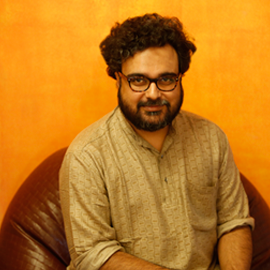
One of those numerous legends about Akbar and Birbal goes like this: the emperor challenged his courtiers to shorten a line drawn on a slate without erasing it. When all others had failed, the clever Birbal, as always, came up with the solution. He drew another line parallel to the original and stretched it longer.
There's a lesson here for Narendra Modi and Amit Shah. Rather than bulldoze their way to realising the dream of Congress-mukt Bharat (an India free of Congress), they would do well to build a bigger, better organisation of their own.
Also read - President's rule imposed in Uttarakhand; Congress terms Modi-led NDA 'fascist'
The political crisis in Uttarakhand, however, suggests they prefer the hammer to the trowel.
There is no denying that the crisis was seeded by the factionalism in the Congress and the failure of the party's leadership to address it. It's equally true, however, that the rebellion was stoked by the BJP. The imposition of President's Rule on the eve of the Harish Rawat government's floor test all but confirms this, many political analysts argue.
The Modi regime justified the decision saying the Rawat government was "unconstitutional" since it had apparently lost its majority. This is at best a dodgy claim to sack a democratically elected administration.
That this is not the first Congress government the BJP has engineered the downfall of only strengthens the suspicion that the Uttarakhand crisis had much to do with constitutional principle.
In Arunachal Pradesh early this year, the BJP was instrumental in ousting Nabam Tuki's government with its legislators supporting the no-confidence motion brought by 20 dissident Congress MLAs.
The Congress fears the BJP is playing the same game in Manipur, Karnataka and Himachal Pradesh, the last remaining bastions of the Grand Old Party.
Is the BJP trying to bring down Congress' regimes in Manipur, Karnataka and Himachal Pradesh as well?
Such games are, of course, hardly surprising in Indian politics. In a way, the Congress, for long the operator-in-chief in this sly trade, is getting a taste of its own toxin. But the sheer brazenness with which the BJP is going about stands out.
This begs the question: why is a party ruling with an absolute majority doing this?
The impending assembly elections is the answer many political analysts have settled on.
Their argument goes thus: Punjab, Uttar Pradesh and Uttarakhand are slated to go to polls within months of Tamil Nadu, West Bengal, Puducherry, Kerala and Assam. The BJP has little chance of winning any of these states, except perhaps Assam, so it's trying to grab power through the backdoor wherever it can.
In Assam, the BJP is banking on strong anti-incumbency against the Congress's 15-year rule and communal polarisation over the issue of Bangladeshi immigrants to take power.
Also read - Uttarakhand Speaker expels rebel Cong MLAs; Can CM Rawat smile now?
In the other states, the BJP is either irrelevant or battling for survival. It's as good as irrelevant in Tamil Nadu. In neighbouring Kerala, the party may add to its traditionally low vote share but it's seat tally is unlikely to reach double digits. It's almost the same story in West Bengal.
While the BJP may argue it is still building its organisation in these states, it won't have any excuse for doing badly in Punjab and Uttarakhand. As for UP, nothing less than a very good performance will do. The country's electorally most significant state, which votes early next year, is a matter of prestige for the party; it won 73 of the 80 parliamentary seats there in 2014. As of now, however, it looks unlikely that the party would get anywhere near repeating that feat.
This is not least because the BJP has so far failed to devise viable campaign strategies for these states except Assam. It has not even chosen a president in UP. In Punjab, it can't decide whether to stay in alliance with the Akali Dal or go it alone.
Such tactics won't benefit BJP in the long run. It must strengthen organisation instead: Sangh leader
In Uttarakhand, it has scored a self-goal. The Congress government was widely seen as weak and ineffective and looked set to be voted out. This assessment, in fact, was shared by many in the BJP and the RSS, that the "Congress had little chance to return to power".
But now, these Sangh leaders fear, "the imposition of President's Rule may work in favor of the Congress". As one of them put it, "This decision might come back to haunt the BJP in the end".
More damagingly, a section of the Sangh leadership feels, "such tactics will not benefit in the long run" as they mask the need for strengthening the party. Instead of trying to grab power through such tactics, they say, the BJP should work on strengthening its organisation.
Amit Shah's team, however, seems more interested in achieving short-term gains. This approach will certainly prove counterproductive in the end, and the sooner the BJP realises this the better for it.
The views expressed here are personal and do not necessarily reflect those of the organisation.
Edited by Mehraj D Lone
More in Catch - Uttarakhand guv saves the day for rebels; Rawat on the back foot
BJP & Cong meet President on U'khand crisis, both confident about numbers
Uttarakhand crisis: Congress expels Vijay Bahuguna's son Saket for 6 years








![BJP's Kapil Mishra recreates Shankar Mahadevan’s ‘Breathless’ song to highlight Delhi pollution [WATCH] BJP's Kapil Mishra recreates Shankar Mahadevan’s ‘Breathless’ song to highlight Delhi pollution [WATCH]](https://images.catchnews.com/upload/2022/11/03/kapil-mishra_240884_300x172.png)

![Anupam Kher shares pictures of his toned body on 67th birthday [MUST SEE] Anupam Kher shares pictures of his toned body on 67th birthday [MUST SEE]](https://images.catchnews.com/upload/2022/03/07/Anupam_kher_231145_300x172.jpg)






